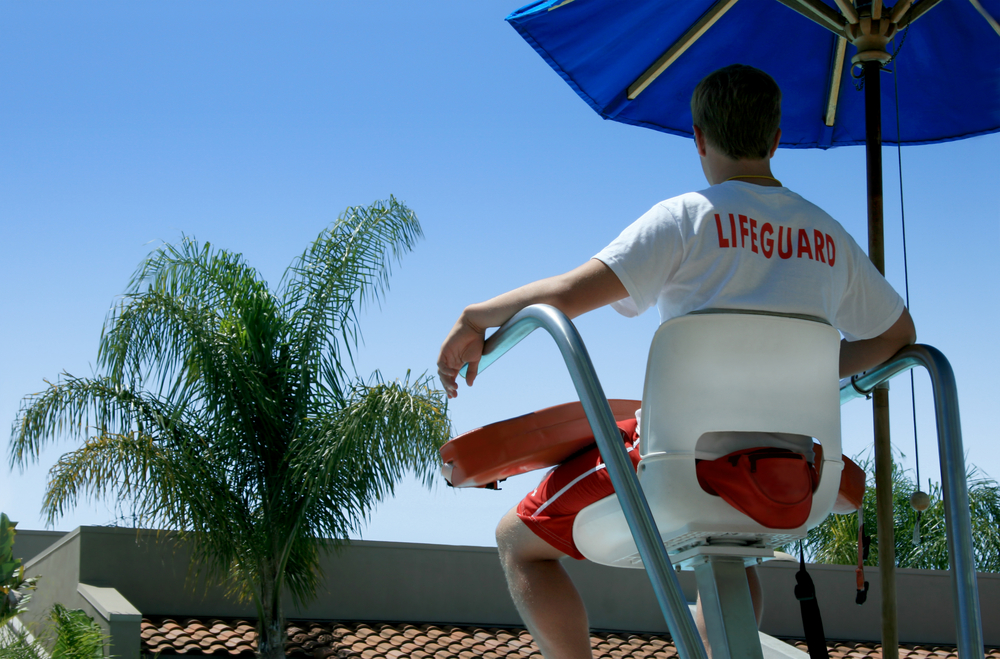How Lifeguards Spend Their Day

You’ve no doubt seen lifeguards on TV and in movies. Most of the time, they’re in the middle of dramatic situations or watching over the pool or beach looking glamorous while hanging out with their friends. The reality of being a lifeguard, however, is slightly different than Hollywood would have you believe. You won’t be saving swimmers from threatening situations all day, but you won’t be sitting at your station all day, either. Being a lifeguard involves a number of daily tasks and responsibilities to keep the pool running efficiently. So what do lifeguards really do all day?
Basic pool maintenance
Lifeguards learn how to read chemical levels in the pool to make sure the water is balanced and has the proper pH levels, alkalinity, and calcium hardness, among other chemical tests. Keeping the water balanced is important so you don’t get algae growth or high pH levels that can cause swimmers’ eyes to sting. Usually, the lifeguard team is also responsible for keeping the rest of the facility clean and organized. Your manager will rotate lifeguards so that you can complete your secondary duties while other guards are at the stations.
Scan the pool
You and the other lifeguards on your shift will be responsible for being at your stations and scanning the pool to make sure swimmers are staying safe and intervene in any dangerous situations. You’ll frequently be switching stations to stay fresh and alert. While you’re scanning, you need to stay distraction-free and make sure you and your equipment are in a position to act quickly in case of emergency.
Pool safety
Lifeguards are in charge of enforcing pool rules, whether that means reminding patrons of “no diving” rules, making sure kids aren’t wearing water-wings or floaties if that’s prohibited, and asking kids to walk, not run, around the pool. You’ll also need to make calls based on weather conditions as to whether swimmers need to get out of the pool.
Swimming and safety classes
You may have the opportunity to teach swimming or safety classes when you aren’t at your station. You may also be the person who administers swim tests so that kids can get approved to go into the deep end or get other swimming-pool privileges. Sometimes lifeguards are required to set up areas of the pool for different classes like aqua aerobics, and even non-pool-related activities like beach volleyball nets.
As a lifeguard, you’ll be busy working as part of a team to make sure everything runs smoothly. So whether you’re at a station scanning the pool, checking the water balance, or tidying up after a big group comes through for a party, you’ll be helping to make sure your pool is a safe and fun place for swimmers.
Ready to learn more about how to become a lifeguard? Apply online with American Pool, and we’ll guide you through the process.
